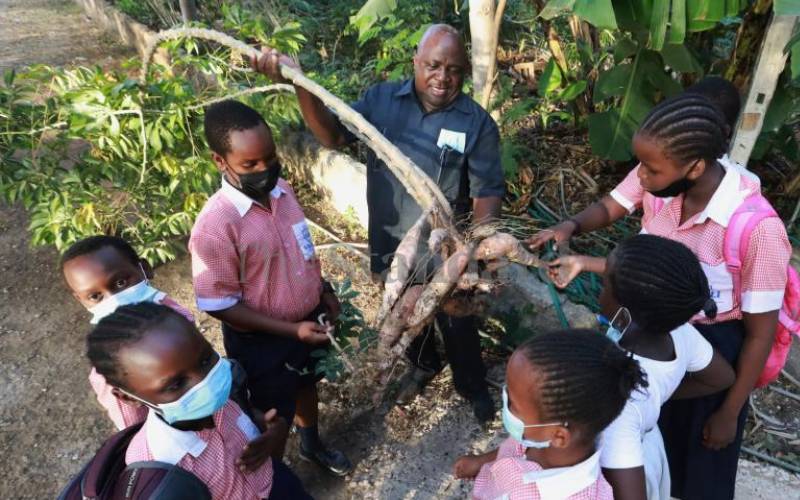×
The Standard e-Paper
Join Thousands Daily

Nyali School Principal John Kombo shows pupils cassava, January 2021. [Kelvin Karani, Standard]
Way back in 1998, Prof Terry Hyland, a British specialist in basic education, had warned that some European governments and education marketers were exporting academic failure overseas, especially in Sub-Saharan Africa, by recommending competence-based curricula, which he had compared to sub-standard soap operas for having many anomalies in assessment of learners.